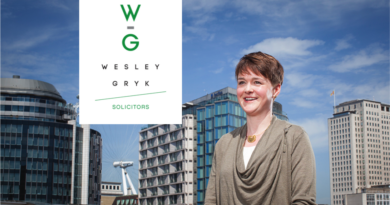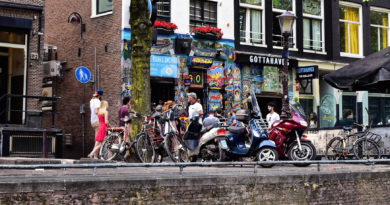Young Brit: “I want to know what it means to be a citizen of the EU”
I am a 25-year-old Brit who was born and predominantly raised in Germany, where my father was working for the British military. I was in Bad Fallingbostel until the age of 13. I then lived in Scotland for 10 years, gaining a masters degree before moving to Austria in 2014 for a European Voluntary Service placement. I then moved to Cologne, where my German partner lives and works, and I now study in Austria. How would I describe myself?
Although I didn’t want to remain in the UK at the coming of age, I recognise the strong influence British culture has had on me, but I do not feel “just” British. I don’t feel German but growing up there definitely had an impact. Perhaps the best way to describe my identity is European.
Right now it is absolutely unclear what will happen to Brits in other EU countries, just like it is not clear what will happen to people from other EU nationals in the UK. I personally feel abandoned by all sides. Ideally the EU would stand by the ideas it promotes and defend my rights, but I understand that could jeopardise EU citizens in the UK, so the promise should come first from the British government.
One very troubling aspect for me is that Austria may vote in an extreme right president in December. No one knows what impact that will have, but I do not feel optimistic about the EU or the UK protecting the migrants living here. Nationalism is indeed rising across Europe. After the economic downturn, states wanted to protect themselves and external problems became an easy target to shift blame because they seem easier to control, rather than questioning and admitting to the poor decisions made nationally. The media and a lacking education system have played a large role in this. Checking the validity of the claims made in articles is not actively taught nor encouraged in school, for example. Nationalistic tendencies have always existed, everywhere, but now they have a bigger political platform and have been legitimised.
So what are my hopes? My future is very much within the EU, but I am in the position where I cannot apply for German citizenship yet, despite my history with the country. For myself (and in the short-term), I want security or at the very least knowledge. I want to know the rules that will define my existence within the EU. This wish extends to all who find themselves in the same situation.
I understand what it means to be European and what freedom of movement is in the EU. It is a central concept that has given us access to each other. Europe is not one entity, it is not one culture or one people, so it is really important to encourage and make it easy for people to get to know each other and to educate ourselves about our cultures. We do not have to agree, but we should find a common ground, enjoy the differences and keep moving things forward together.
In the long-term, I wish to see the EU discuss what it means to be a citizen of the EU, how to solidify this idea and when it can be removed from those who do not want to lose it. I wish for a reform in political campaign strategies and accountability, also for the media. Too much of what was said during the EU referendum campaign wasn’t true, or was speculation sold as fact. This should have no space in democracy, it is incredibly irresponsible. I wish for this situation to never happen again, really. A country should be allowed a referendum on this topic, but it should not have the character of Brexit and should definitely not result in manipulation, racism, xenophobia, violence, murder and the use of human beings as bargaining chips.
Political campaigns should not be built on slogans, but on aims backed up with research and data with open forums where people can comment and have face-to-face contact with experts in economy, politics, and in this case, migration and the EU. In fact, this should happen for all elections.
As regards to the EU itself, it has largely failed to focus on the cultural aspects on what it is to be European. The EU has never defined what it is to be an EU citizen other than having the freedom to move and work. But there is more to it and we should think about it together, talking transnationally.
There is also a generational aspect to the current situation. It is incredibly important to have the European Voluntary Service, Erasmus and a lot of other programmes for youth exchange. But there hasn’t been a similar offering for older generations and perhaps this is what we could see in the referendum result. Older people do not see the same benefits of the EU, because they generally do not interact in the same way. There should be concrete strategies to address this.
I am also extremely worried for the youth of the UK. We already have a poor track record of learning languages and engaging with study abroad programmes. It is fair to assume that this would worsen post-Brexit with the potential loss of EU programmes. In a time where our access to the world and our ability to be competitive in the job market, which increasingly demands international experience, is imperative, our youth will suffer if they lose funded opportunities to engage internationally. On top of that, the economy is a concern for my generation and political disillusionment amongst us is a big issue. But to protect our own future, and that of younger generations, we need to be more politically active.
Roxanne Mackie
Photo: Roxanne Mackie in Graz, Austria. By Cristiana Moroz. © All rights reserved.






